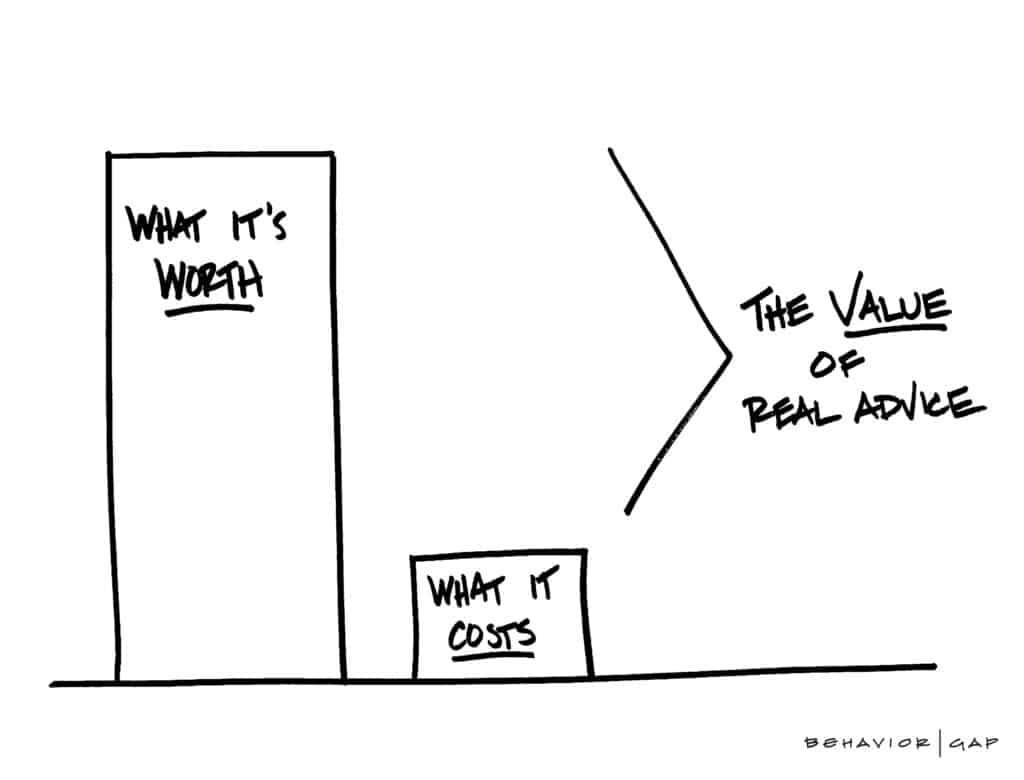We’re biased towards our own money: Here’s what we can do about it
In one way or another, we all have a complex relationship with our own money at times.
It’s a fact.
Because of that, it’s hard to be rational all the time in how we use it or the decisions we make about it.
But where do our behavioural biases come from, and what can we do to counteract them?
We explore this below.

What Are Behavioural Biases?
Many of us set budgets and monitor our investments and spending.
In doing so, many of us like to think that we are acting rationally with our money.
But the truth is, humans are emotional beings.
And when it comes to their finances and money, that can affect their decision-making.
Common emotions that influence how we spend and invest include:
- Fear
- Guilt
- Shame
- Envy
- Hope
- Excitement
- Immediate gratification
In terms of investments, this can lead to decisions that impact your returns, particularly in the long run.

For example, you may choose to “follow the crowd” due to fear of missing out or selling shares impulsively when stocks start trending down.
We’ve seen this happen when individuals have conversations with their friends or colleagues.
You may choose to make decisions based on what the financial media are broadcasting.
Emotional spending (sometimes called “retail therapy”) is another common practice influenced by behavioural biases.
When you’re unhappy or upset, buying something new can make you feel better (at least for a little while).
Take comfort in that you’re not alone in your behavioural biases.
And you can take action to change those things that may be impacting your financial standings.
What Not to Do
Although it may be tempting, avoid making rash investment decisions based on what you see in the news or hear from friends and family.
For example, you may hear that a CEO of a major corporation is stepping down because of a fraud allegation against him.
In turn, your first reaction may be to get rid of your stock in that company.
When in reality, this may not have any impact on the company’s performance – especially in the long run.
Instead of thinking about that company’s stock over the span of years or decades, you made an in-the-moment decision based on short-term changes.
Your gut reaction was to protect your assets right now, when in reality you may have actually hurt your chances for greater returns down the line.
So, What Can You Do Instead?

Talk to a Certified Financial Planner™
Once you realise your money decisions tend to be dictated by your emotions, work with a financial planner.
Definitely one with the Certified Financial Planner™ or CFP® certification.
Even better, one accredited by the All-Ireland Business Foundation.
A shameless plug there to work with Fortitude Financial Planning!!
We will act as your educated, unbiased third party to guide you through your financial planning life.

Think Long-Term
It is also vital that you think long-term when making financial and money decisions, rather than following trends that will not be beneficial to you in the future.
Know Yourself
Being self-aware is an important step in avoiding behavioural biases, particularly when it comes to investing.
It’s important to know:
- Your level of risk tolerance
- Your capacity for risk
- Individual investment objectives
This then helps determine your asset allocation strategy.
Doing so should help alleviate some worry regarding your investments and reduce the urge to make choices impulsively.
Acknowledging and controlling your behavioural biases can help you feel confident in your investment decisions and everyday spending choices.
Summary
Unfortunately, behavioural biases and our emotions affect our decisions.
Both financial and non-financial decisions.
The problems arise when financial decisions we make affect our financial wellbeing.
Both in the present and into the future.
However, you do have tools to combat these biases.
Working with a trusted CFP® will also provide an objective third-party to offer educated guidance and direction – without emotional bias.
Why Work With Fortitude Financial Planning
As a CFP® firm, we can provide the financial guidance you need.
We will provide that objective third party view.
Everyone needs some level of a financial plan.
We have service levels to suit all, depending on your circumstance and what you actually need.
Not only are we Certified Financial Planner™ certified, we are also one of the few financial planning and advice firms in Ireland accredited by the All Ireland Business Foundation for our trust and customer-centricity.

Get in touch
Do you have a financial query?
Maybe you’ve left employment and want to discuss your old pension?
Have you a collection of financial products sold to you in the past and you just want to review them?
Maybe your just looking for a review, to see what’s good and what can be improved.
Give you confidence that you are on the correct track.
Let’s have a chat, no-obligation, at our expense.
Drop me an email, francis@fortitudefp.ie or request a callback.
You can also give me a call on 086 0080 756 or access our diary here and book a call at your convenience.
Visit our content library.
Over 50 articles on various financial subjects and learn more about our experience and expertise.
A wealth of free information on hand, covering all aspects of saving, investing, financial planning, protection and pension advice.


Our blog posts are intended for information purposes only and should not be interpreted as financial advice.
You should always engage the services of a fully qualified financial planner before entering any financial contract.
To discuss engaging the services of Fortitude Financial Planning please email us at info@fortitudefp.ie.
Fortitude Financial Planning Ltd will not be held responsible for any actions taken as a result of reading these blog posts.




 Production
Production